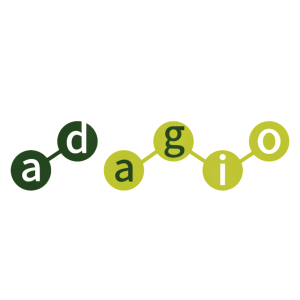Invivyd Announces Continued Neutralizing Activity of PEMGARDA™ (pemivibart) Against Dominant SARS-CoV-2 Variants KP.3.1.1 and LB.1, and Other Variants of Interest
Rhea-AI Summary
Invivyd (IVVD) announces continued neutralizing activity of PEMGARDA™ (pemivibart) against dominant SARS-CoV-2 variants KP.3.1.1 and LB.1, as well as other variants of interest. New pseudovirus in vitro neutralization data show:
1. Continued effectiveness against KP.3.1.1, which accounts for 42.2% of circulating variants and is the only major variant increasing nationally.
2. Efficacy against variants containing key mutations like Q493E and S31 deletion.
3. Pemivibart's epitope remains intact across 99.59% of viral sequences since Omicron BA.1.
4. Pipeline candidate VYD2311 also shows promising neutralization potency.
Data submitted to FDA for potential updates to PEMGARDA™ Fact Sheet. This demonstrates Invivyd's ongoing efforts in developing variation-resistant COVID-19 antibody medicines.
Positive
- PEMGARDA™ (pemivibart) shows continued neutralizing activity against dominant SARS-CoV-2 variants KP.3.1.1 and LB.1
- Pemivibart's epitope remains intact across 99.59% of viral sequences since Omicron BA.1
- Pipeline candidate VYD2311 demonstrates attractive neutralization potency against contemporary viruses
- Data submitted to FDA for potential updates to PEMGARDA™ Fact Sheet, indicating progress in regulatory processes
Negative
- None.
News Market Reaction
On the day this news was published, IVVD gained 0.19%, reflecting a mild positive market reaction.
Data tracked by StockTitan Argus on the day of publication.
- New pseudovirus in vitro neutralization data show continued neutralizing activity of PEMGARDA™ (pemivibart) against KP.3.1.1, LB.1, and other SARS-CoV-2 variants tested
- Center for Disease Control reports KP.3.1.1 is the only major variant increasing in proportionality nationally
- Variants confirmed as susceptible to pemivibart in independent analyses contain key Q493E, s31del, and other mutations that are prominent in circulating SARS-CoV-2 variants
- Data submitted to FDA for anticipated timely updates to PEMGARDA™ Fact Sheet
- Pipeline candidate VYD2311 shows attractive neutralization potency against the same contemporary viruses
WALTHAM, Mass., Sept. 03, 2024 (GLOBE NEWSWIRE) -- Invivyd, Inc. (Nasdaq: IVVD), a biopharmaceutical company devoted to delivering protection from serious viral infectious diseases, today announced that new pseudovirus in vitro neutralization data show continued neutralizing activity of PEMGARDATM (pemivibart) and pipeline candidate VYD2311 against dominant SARS-CoV-2 variants KP.3.1.1 and LB.1, and others tested. The Center for Disease Control (CDC) estimates that KP.3.1.1 accounted for
Invivyd generated these new data as part of its ongoing industrial virology effort, which leverages a consistent, high-quality, independent, third-party pseudoviral system that routinely tests authentic Invivyd-produced pemivibart and is supported by extensive structure-based analytics. KP.3.1.1, LB.1, and other viruses now assessed and confirmed as susceptible to pemivibart contain key mutations prominent in circulating SARS-CoV-2 variants such as Q493E and the S31 deletion (del) that, while outside of the pemivibart binding site, can influence viral antibody evasion. As of September 2024, the primary structure of the pemivibart epitope has remained intact across
“At Invivyd, we combine surveillance, predictive modeling and antibody engineering towards developing antibody medicines designed to demonstrate continued activity in the face of ongoing SARS-CoV-2 evolution,” said Robert Allen, Ph.D., Chief Scientific Officer. “Pemivibart has now demonstrated antiviral activity against thirty-three distinct SARS-CoV-2 variants across more than two years of rapid virus evolution from Omicron BA.2 through to the most common current virus KP.3.1.1 and related tested variants.”
“We are pleased but not surprised by today’s robust data that confirm ongoing PEMGARDA™ (pemivibart) neutralizing activity against current circulating viral lineages, including KP.3.1.1, perhaps predictably given the continued structural integrity of the pemivibart binding site shown in these viruses,” noted Marc Elia, Chairman of the Invivyd Board of Directors. “Today’s data are especially important given that recent, preliminary, non-peer-reviewed reports assessing molecules represented as similar to pemivibart raised questions on these topics. Reliable antibody neutralization assessment is a challenging scientific field, and Invivyd deploys considerable resources towards ensuring that our assessments of authentically manufactured pemivibart are robust, produced in compliance with applicable standards, and can be used for their intended purpose, as defined by the guidance provided to industry by the U.S. Food and Drug Administration (FDA)1.”
“We are pleased for vulnerable populations that our standard, ongoing processes have decisively answered important questions about KP.3.1.1 and contemporary SARS-CoV-2 viruses, particularly given the extraordinary burden of COVID-19 disease in the U.S. today and the need for reliable medical information for clinicians and their immunocompromised patients, among others, in this complex and dynamic field,” continued Mr. Elia.
Data showing continued in vitro neutralizing activity of PEMGARDA™ (pemivibart) against KP.3.1.1, LB.1 and other SARS-CoV-2 variants have been submitted to the FDA for anticipated timely updates to the PEMGARDA Healthcare Providers Fact Sheet.
About PEMGARDA
PEMGARDA™ (pemivibart) is a half-life extended investigational monoclonal antibody (mAb). PEMGARDA was engineered from adintrevimab, Invivyd’s investigational mAb that has a robust safety data package and provided evidence of clinical efficacy in a global Phase 2/3 clinical trial for the prevention and treatment of COVID-19. PEMGARDA has demonstrated in vitro neutralizing activity against major SARS-CoV-2 variants, including JN.1. PEMGARDA targets the SARS-CoV-2 spike protein receptor binding domain (RBD), thereby inhibiting virus attachment to the human ACE2 receptor on host cells.
PEMGARDA (pemivibart) injection (4500 mg), for intravenous use is an investigational mAb that has not been approved, but has been authorized for emergency use by the U.S. FDA under an EUA for the pre-exposure prophylaxis (prevention) of COVID-19 in adults and adolescents (12 years of age and older weighing at least 40 kg) who have moderate-to-severe immune compromise due to certain medical conditions or receipt of certain immunosuppressive medications or treatments and are unlikely to mount an adequate immune response to COVID-19 vaccination. Recipients should not be currently infected with or have had a known recent exposure to an individual infected with SARS-CoV-2.
PEMGARDA is not authorized for use for treatment of COVID-19 or post-exposure prophylaxis of COVID-19. Anaphylaxis has been observed with PEMGARDA and the PEMGARDA Fact Sheet for Healthcare Providers includes a boxed warning for anaphylaxis. The most common adverse events (all grades, incidence ≥
To support the EUA for PEMGARDA, an immunobridging approach was used to determine if PEMGARDA may be effective for pre-exposure prophylaxis of COVID-19. Immunobridging is based on the serum virus neutralizing titer-efficacy relationships identified with other neutralizing human mAbs against SARS-CoV-2. This includes adintrevimab, the parent mAb of pemivibart, and other mAbs that were previously authorized for EUA. There are limitations of the data supporting the benefits of PEMGARDA. Evidence of clinical efficacy for other neutralizing human mAbs against SARS-CoV-2 was based on different populations and SARS-CoV-2 variants that are no longer circulating. Further, the variability associated with cell-based EC50 value determinations, along with limitations related to pharmacokinetic data and efficacy estimates for the mAbs in prior clinical trials, impact the ability to precisely estimate protective titer ranges. Additionally, certain SARS-CoV-2 viral variants may have substantially reduced susceptibility to PEMGARDA, and PEMGARDA may not be effective at preventing COVID-19 caused by these SARS-CoV-2 viral variants.
The emergency use of PEMGARDA is only authorized for the duration of the declaration that circumstances exist justifying the authorization of the emergency use of drugs and biological products during the COVID-19 pandemic under Section 564(b)(1) of the Federal Food, Drug, and Cosmetic Act, 21 U.S.C. § 360bbb-3(b)(1), unless the declaration is terminated or authorization revoked sooner. PEMGARDA is authorized for use only when the combined national frequency of variants with substantially reduced susceptibility to PEMGARDA is less than or equal to
About VYD2311
VYD2311 is a novel monoclonal antibody (mAb) candidate being developed for COVID-19 to continue to address the urgent need for new therapeutic options for vulnerable populations, including immunocompromised people.
VYD2311 was engineered from adintrevimab, Invivyd’s investigational mAb that has a robust safety data package and demonstrated clinically meaningful results in global Phase 3 clinical trials for both the prevention and treatment of COVID-19. The pharmacokinetic profile of VYD2311 may offer the ability to deliver clinically meaningful titer levels through more patient-friendly means such as an intramuscular route of administration.
About Invivyd
Invivyd, Inc. (Nasdaq: IVVD) is a biopharmaceutical company devoted to delivering protection from serious viral infectious diseases, beginning with SARS-CoV-2. The company’s proprietary INVYMAB™ platform approach combines state-of-the-art viral surveillance and predictive modeling with advanced antibody engineering. INVYMAB is designed to facilitate the rapid, serial generation of new monoclonal antibodies (mAbs) to address evolving viral threats. In March 2024, Invivyd received emergency use authorization (EUA) from the U.S. FDA for its first mAb in a planned series of innovative antibody candidates. Visit https://invivyd.com/ to learn more.
References
- FDA Draft Guidance for Industry: Data Integrity for In Vivo Bioavailability and Bioequivalence Studies. https://www.fda.gov/media/177404/download, accessed September 2024
Cautionary Note Regarding Forward Looking Statements
This press release contains forward-looking statements within the meaning of the Private Securities Litigation Reform Act of 1995. Words such as “anticipates,” “believes,” “could,” “expects,” “estimates,” “intends,” “potential,” “projects,” and “future” or similar expressions (as well as other words or expressions referencing future events, conditions or circumstances) are intended to identify forward-looking statements. Forward-looking statements include statements concerning, among other things, the company’s ongoing research and clinical development activities, as well as future potential research and clinical development efforts; the company’s ongoing industrial virology efforts, which leverages a consistent, high quality, independent, third-party pseudoviral system that routinely tests authentic Invivyd-produced pemivibart and is supported by extensive structure-based analytics; the company’s plans to generate and advance high quality, variation-resistant COVID-19 antibody medicines; the company’s goal of developing antibody medicines that demonstrate continued activity in the face of ongoing SARS-CoV-2 evolution; the company’s goal of ensuring that its assessments of authentically manufactured pemivibart are robust, produced in compliance with applicable standards, and can be used for their intended purpose; the company’s expectation that the FDA will make timely updates to the PEMGARDA Healthcare Providers Fact Sheet; the potential of VYD2311 to build on the success of PEMGARDA™ (pemivibart); the ability of VYD2311 to deliver clinically meaningful titer levels through more patient-friendly means such as an intramuscular route of administration; the company’s devotion to delivering protection from serious viral infectious diseases, beginning with SARS-CoV-2; the design of the company’s INVYMAB platform approach to facilitate the rapid, serial generation of new mAbs to address evolving viral threats; the potential of PEMGARDA as a mAb for pre-exposure prophylaxis (prevention) of COVID-19 in adults and adolescents who have moderate-to-severe immune compromise; the ongoing in vitro neutralizing activity of PEMGARDA against major SARS-CoV-2 variants; and other statements that are not historical fact. The company may not actually achieve the plans, intentions or expectations disclosed in the company’s forward-looking statements and you should not place undue reliance on the company’s forward-looking statements. These forward-looking statements involve risks and uncertainties that could cause the company’s actual results to differ materially from the results described in or implied by the forward-looking statements, including, without limitation: the timing and progress of the company’s discovery, preclinical and clinical development activities; the risk that results of nonclinical studies or clinical trials may not be predictive of future results, and interim data are subject to further analysis; unexpected safety or efficacy data observed during preclinical studies or clinical trials; the predictability of clinical success of the company’s product candidates based on neutralizing activity in nonclinical studies; potential variability in neutralizing activity of product candidates tested in different assays, such as pseudovirus assays and authentic assays; the company’s reliance on third parties with respect to virus assay creation and product candidate testing and with respect to its clinical trials; variability of results in models used to predict activity against SARS-CoV-2 variants; whether VYD2311, pemivibart or any other product candidate is able to demonstrate and sustain neutralizing activity against major SARS-CoV-2 variants, particularly in the face of viral evolution; how long the EUA granted by the FDA for PEMGARDA will remain in effect and whether the EUA is revoked or revised by the FDA; the company’s ability to build and maintain sales, marketing and distribution capabilities to successfully commercialize PEMGARDA; uncertainties related to the regulatory authorization or approval process, and available development and regulatory pathways for authorization or approval of the company’s product candidates; the ability to maintain a continued acceptable safety, tolerability and efficacy profile of any product candidate following regulatory authorization or approval; changes in the regulatory environment; changes in expected or existing competition; the complexities of manufacturing mAb therapies; the company’s ability to leverage its INVYMAB platform approach to facilitate the rapid, serial generation of new mAbs to address evolving viral threats; any legal proceedings or investigations relating to the company; the company’s ability to continue as a going concern; and whether the company has adequate funding to meet future operating expenses and capital expenditure requirements. Other factors that may cause the company’s actual results to differ materially from those expressed or implied in the forward-looking statements in this press release are described under the heading “Risk Factors” in the company’s Annual Report on Form 10-K for the year ended December 31, 2023 and the company’s Quarterly Report on Form 10-Q for the quarter ended June 30, 2024, each filed with the Securities and Exchange Commission (SEC), and in the company’s other filings with the SEC, and in its future reports to be filed with the SEC and available at www.sec.gov. Forward-looking statements contained in this press release are made as of this date, and Invivyd undertakes no duty to update such information whether as a result of new information, future events or otherwise, except as required under applicable law.
This press release contains hyperlinks to information that is not deemed to be incorporated by reference in this press release.
Contacts:
Media Relations
(781) 208-0160
media@invivyd.com
Investor Relations
(781) 208-0160
investors@invivyd.com








